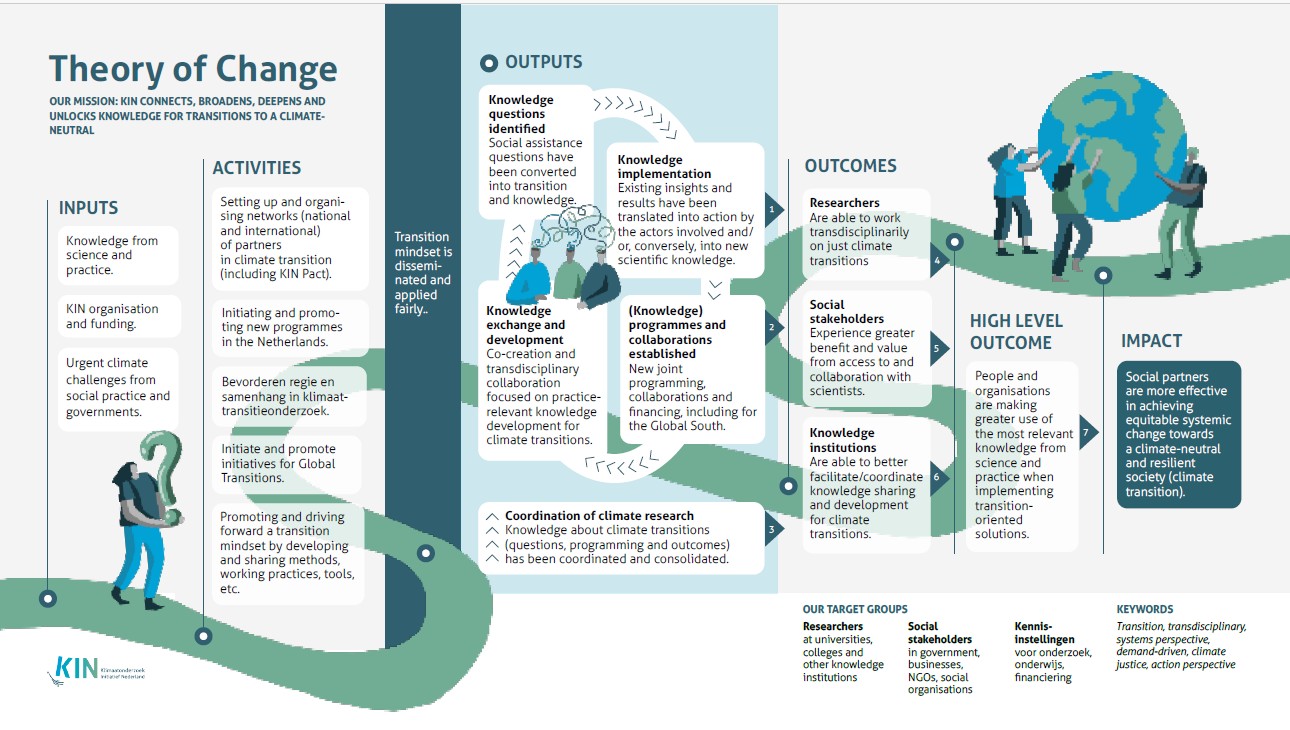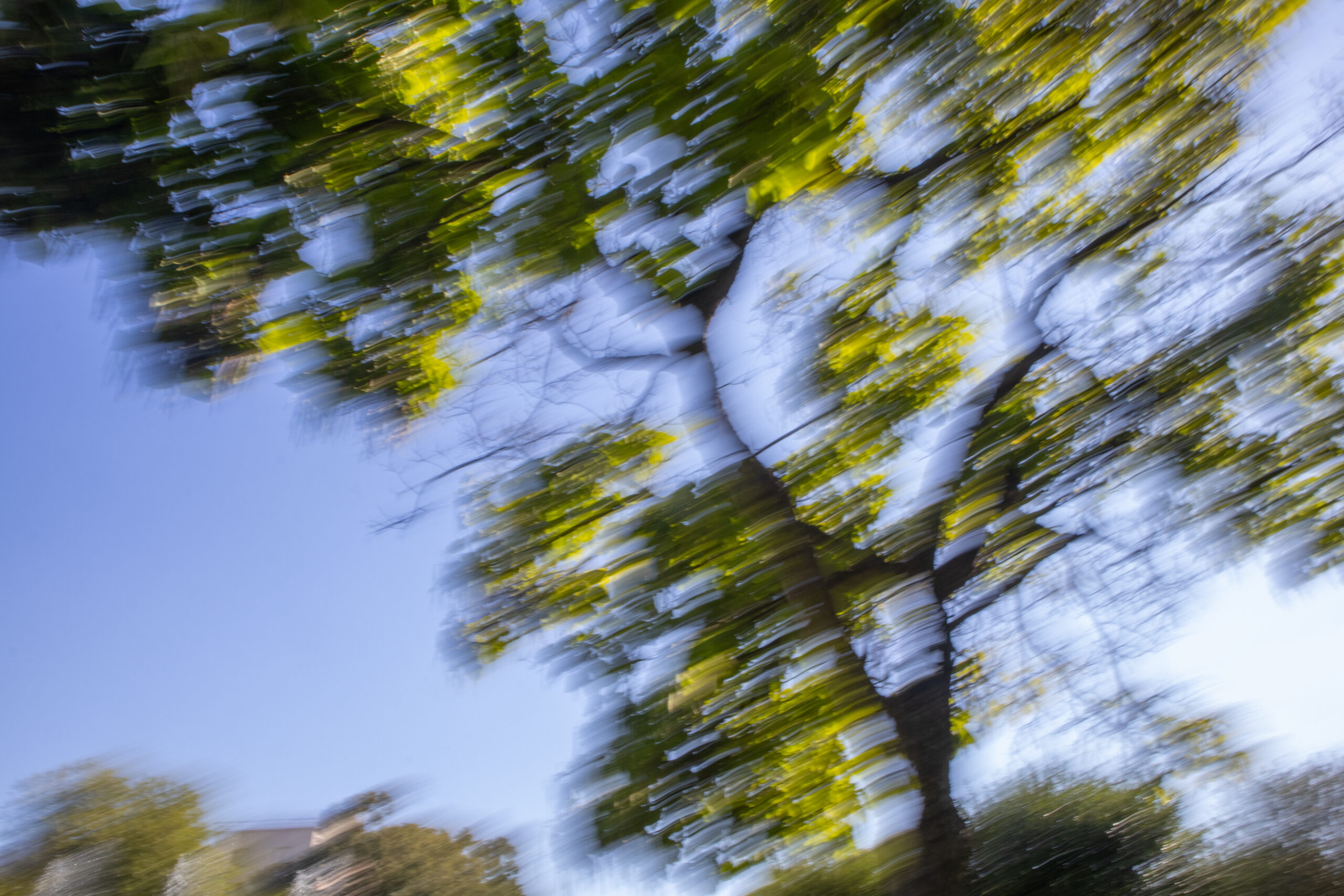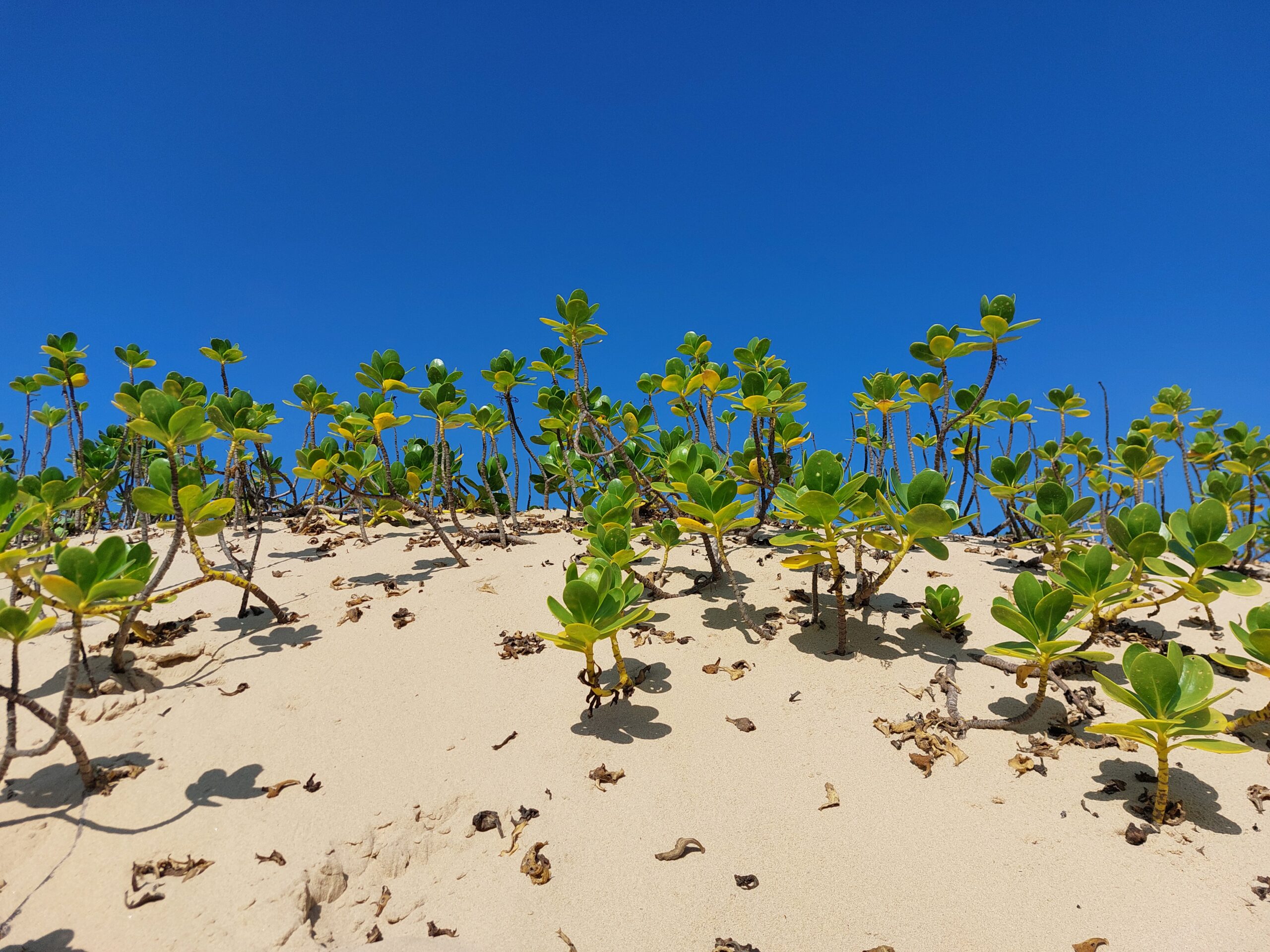KINds
Our approach
The Knowledge-in-Action (KIN) Approach enables researchers and practitioners to jointly investigate what is needed to accelerate just climate transitions. Our Theory of Change describes how we intend to realise the necessary changes in our knowledge system.

Searching, learning and experimenting
The Knowledge-in-Action Approach revolves around searching, learning and experimenting. It is the quality of the process that determines the value of transdisciplinary collaboration. It therefore places high demands on motivation, transparency, but also reflection and modesty on the part of all parties involved. New, relevant and applicable knowledge for transitions is created by jointly researching, exploring and accelerating desired transitions. Part of all phases of this approach is valuing different forms of knowledge, defining new roles for researchers, and facilitating and financing both researchers and societal parties.
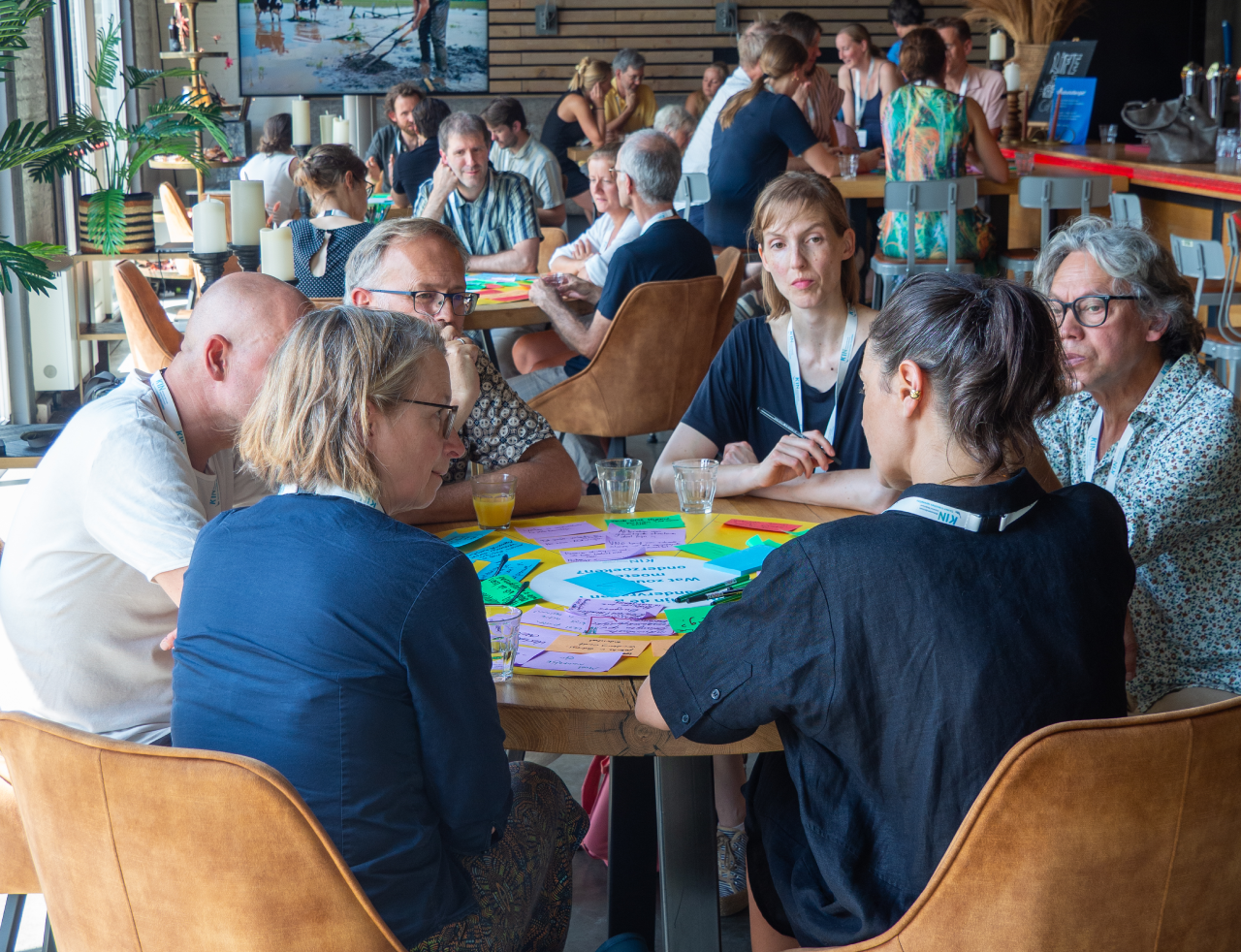
Phase 0: Selection
In the first phase (Selection), we focus on issues that are constantly coming in through our network and through the members of the KIN Pact. In consultation with the Strategy and Advisory Board (SAR) or programme committee, as well as internal experts, we select the topics that we will explore further, frame the issue and refine it.
The Knowledge-in-Action approach consists of several phases. In different phases, the process focuses on formulating research questions related to the desired transitions and transparently financing and supporting transition-oriented research projects.
In the first phase (Selection), we focus on issues that are constantly coming in through our network and through the members of the KIN Pact. In consultation with the Strategy and Advisory Board (SAR) and internal experts, we select the topics that we will explore further, frame the issue and refine it.
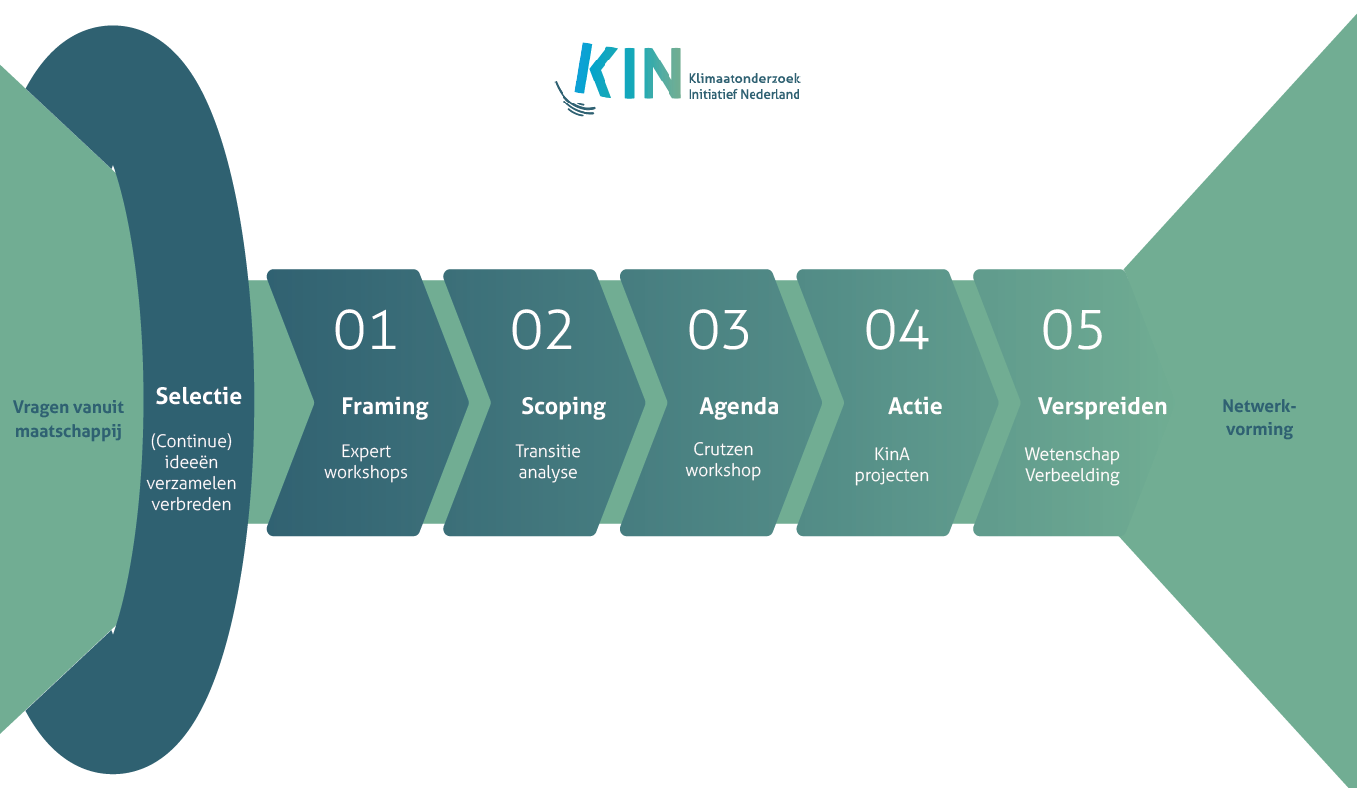
Deciding on the route together
Climate transitions require changes in our way of life that are necessary to combat climate change and make society resilient to the effects of a changing climate. Climate transitions are complex and require a systemic approach.
The route to the desired systemic climate transitions is not yet clear. The Knowledge-in-Action Approach was developed by KIN to develop new insights, knowledge and actions to arrive at this route through transdisciplinary collaboration and to explore alternatives to unjust and unsustainable systems together with practitioners.
The Knowledge-in-Action Approach is an innovative approach. We facilitate transdisciplinary collaboration by bringing together different perspectives and areas of expertise and offering stakeholders – researchers from different disciplines and professionals from social organisations or knowledge institutions – the space to jointly determine the desired direction of transitions.
What is a systemic lens?
By systemic lens, we mean a way of observing, investigating and reasoning that takes into account a (social) subsystem as a whole, with all the different processes, circumstances and actors that belong to it. Various elements within a system must change in order for the system as a whole to change. It is the interconnections that determine how the system functions as a whole. Systems usually have a long history. Structures, cultures and working methods often arise from historical needs, urgency or ambitions – without any consideration at the time for the negative consequences for the climate, biodiversity or global justice.
A systemic lens sees the necessary climate transitions as much more than technological improvements such as more efficient energy generation. Ingrained structures, cultures and working methods relating to, for example, legislation, behaviour and finance must also change.
Phase 1: Framing and Scoping
Through expert discussions, workshops and the gathering of knowledge and insights, KIN is taking the first steps towards defining and exploring a social issue. This forms the basis for the subsequent phases, in which (practical) experts will work together to further explore the issue and determine and investigate possible solutions.

Phase 2: Analysis
During the transition analysis, internal or external experts are set to work to map out the playing field and the question behind the question.
In order to identify, dissect and analyse complex transition tasks, these experts examine the original question from a systemic and fairness perspective.
This deep dive formulates a clear transition task with possible transition paths. To this end, transition discussions and sessions can be held with various stakeholders. The insights gained from this analysis determine the framework for the agenda that will be developed in the Crutzen workshop.
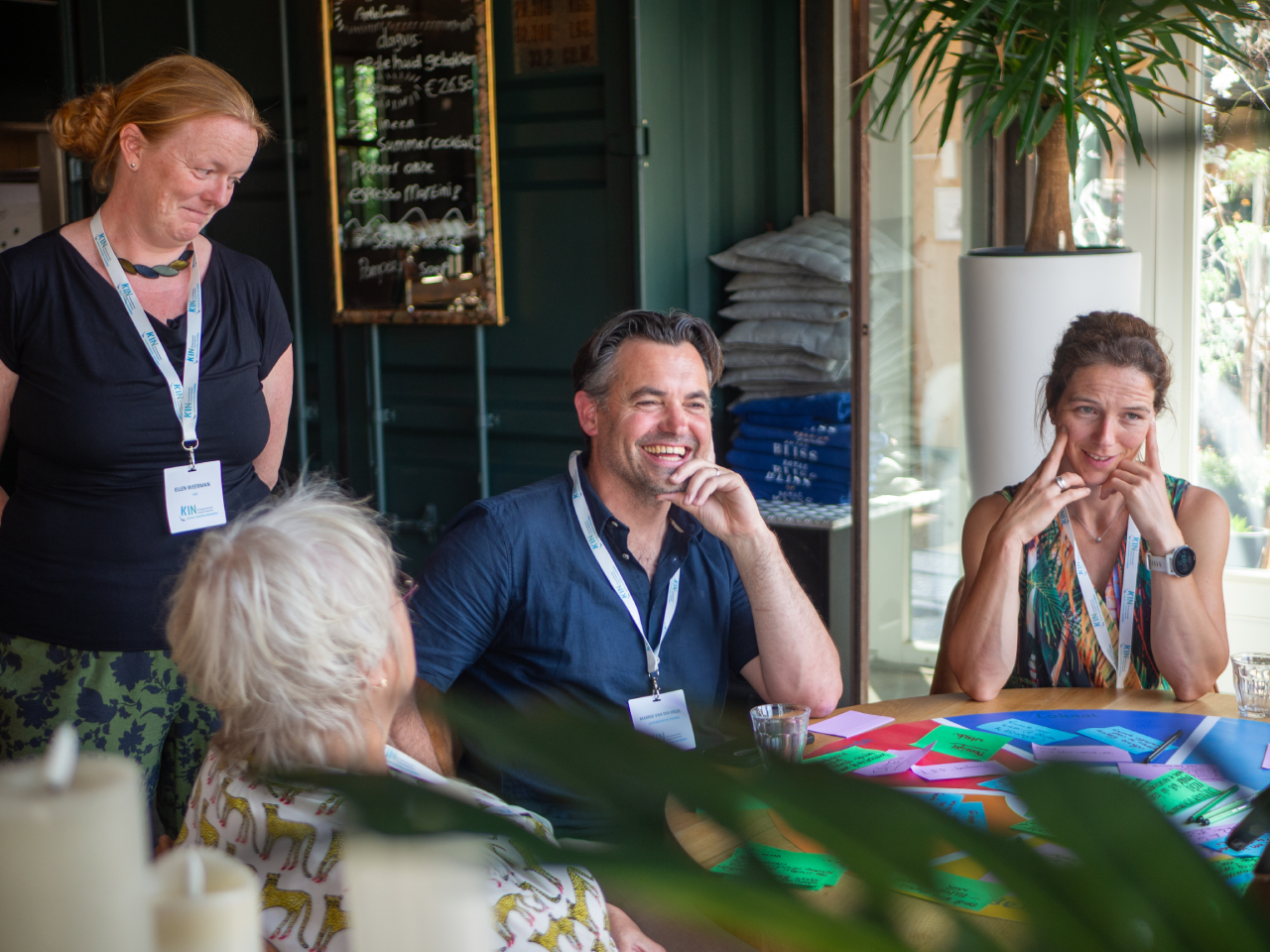
Phase 3: Agenda setting
In this phase, stakeholders (researchers, policymakers, civil society organisations) quickly draw up a knowledge-in-action agenda in a Crutzen workshop. The Crutzen workshop is a workshop format developed by KIN in which participants from different disciplines and sectors (transdisciplinary) work together on system transitions. The workshop and agenda are the starting point for the design of KIN’s programmes.
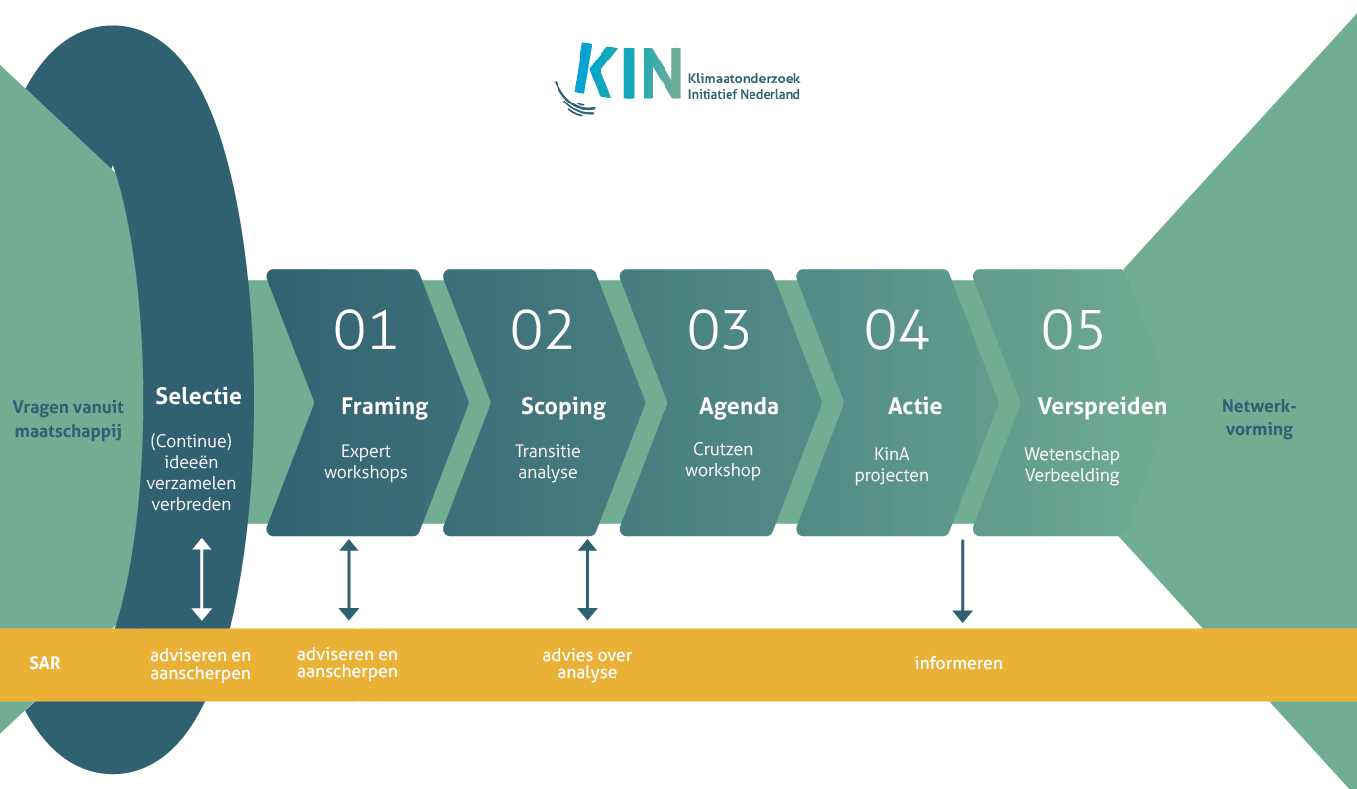
Phase 4: Action
The Crutzen workshop will produce an agenda that will form the framework for the projects that will emerge from the programme, supported by a possible call for subsidies. In this project phase, stakeholders will work together to explore different solutions for the transition that has been outlined, using transition interventions. These are transdisciplinary or transformative projects in which research questions are posed by a diverse group of people who are working together to find a path to a fundamentally better, more just or sustainable future. This can take various forms, but always involves a combination of practical and research expertise, aimed at initiating or advancing the desired transition.

Phase 5: Sharing the knowledge
The Knowledge-in-Action Approach stands for radical knowledge sharing. Actively sharing the knowledge gained from the projects with social partners and/or researchers facing similar challenges is an important part of this. This also applies to seeking collaboration with artists to visualise possible solutions for a climate-proof future.
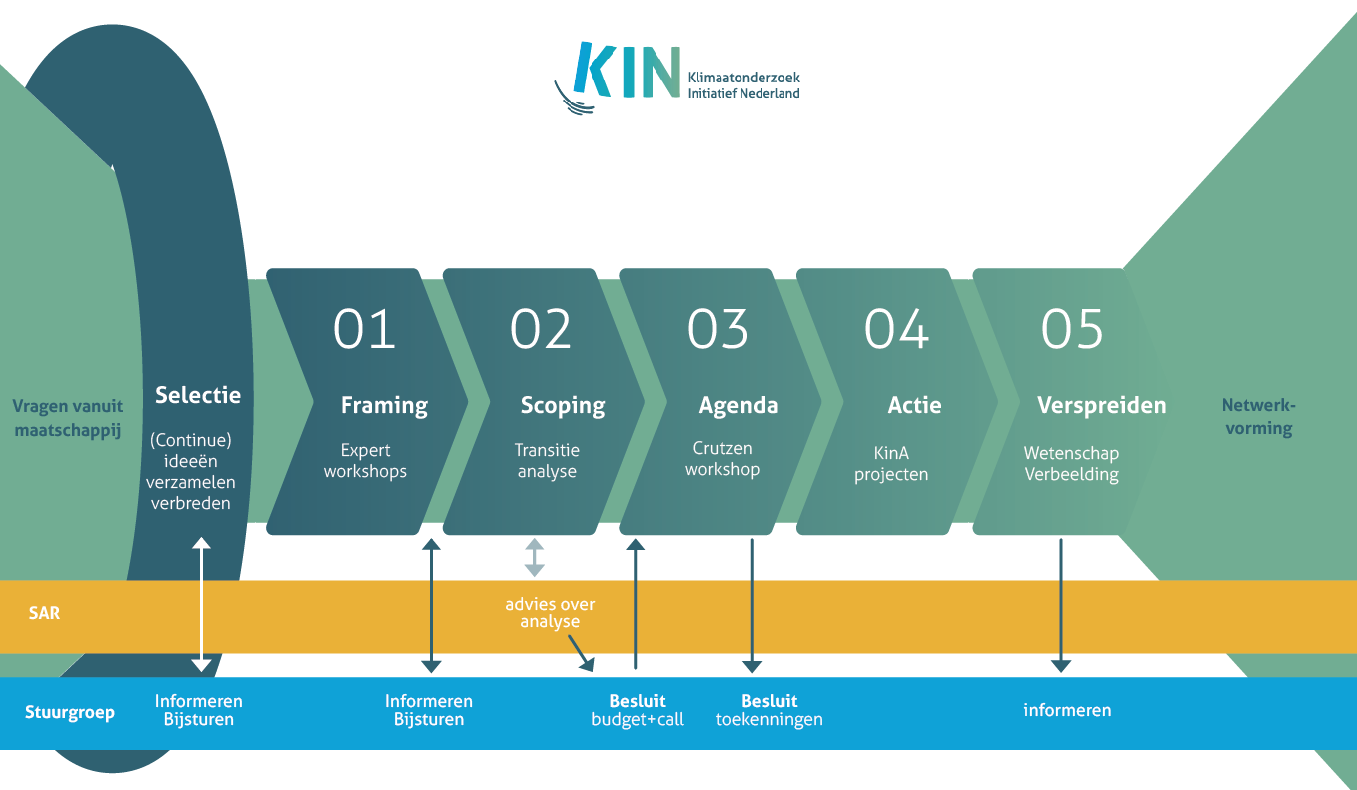
Our Knowledge-to-Action programmes
Theory of Change (TOC)
In order to make social stakeholders more effective in achieving fair systemic change towards a climate-neutral and resilient society, we need to change our knowledge system. In our Theory of Change, we show how we want to achieve this.
